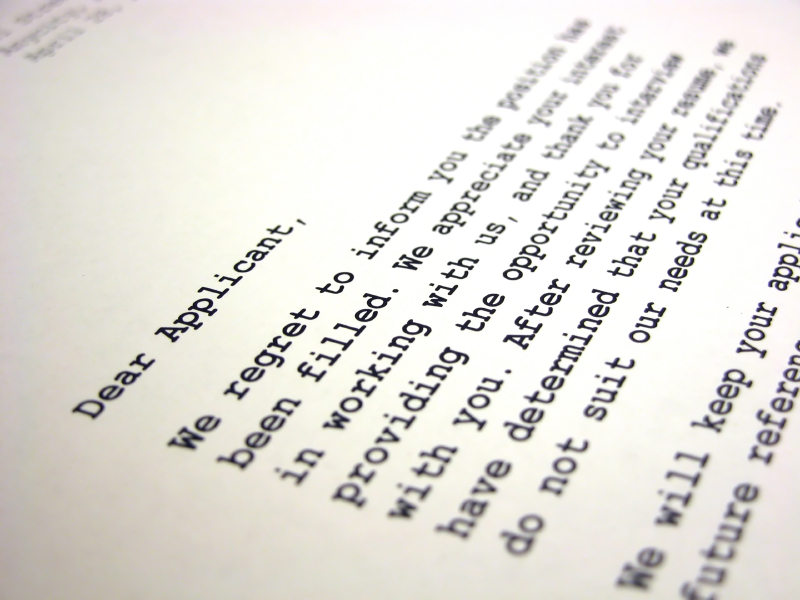How Not to Write a Rejection Letter
Version 1: The letter I received
(The text in italics is what I was thinking as I read it.)
They meant well; I know they did. This is a really well-run conference with hundreds of speakers and probably thousands of proposals. The problem as I see it: they fell prey to the two big traps that so many of us do (myself included) when we have to deliver bad news:
(1) Take way too long to say what needs to be said, and
(2) Say it overly politely, and formally, when a little humanity would do a world of good.
Version 2: The letter I wish I had received
(The text in italics is what I would be thinking as I read it.)
Dear Andrea:
I wish I had better news. (Uh oh. Not good.) I’m sorry to say your proposal for ABC Topic was not selected this year for the XYZ Annual Conference being held June ##-##, 2014 in City, State. (Well, bummer.)
I know proposal submissions take time and I realize you may be disappointed. (They do … and I am!) At the risk of sounding formulaic, I can tell you with the utmost confidence that each proposal was given careful and deliberate consideration. (I hope so!) We work hard to design a balanced program of educational sessions at the conference and choose the proposals that best fit the overall programming framework of the conference. (That makes sense.) We receive between #### and #### proposals each year, often with several on the same topic. (I bet choosing is a really tough job.) As a result, exceptional proposals are turned away each year for one simple reason: limited speaking slots. (I get it.)
Although your proposal was not selected this year, rest assured your interest in offering your skills, background and knowledge is greatly appreciated and I appreciate your interest in making our conference a success. (Thank you!) I hope you’ll consider us again next year. (I think I will!)
Once again, thank you. (You’re welcome.)
There’s a lot of the same text in Version 2.
And a world of difference.




A rejection letter is an opportunity for the sender and recipient alike. The second letter demonstrates just that. As you said, that little bit of humanity provides the incentive for you to give it another go. As for the sender, it gives them an opportunity to find out just what they missed out on. Great advice Andrea. Thanks.
Ed, I appreciate you underscoring the point about incentive. A little humanity does so much good in so many ways.